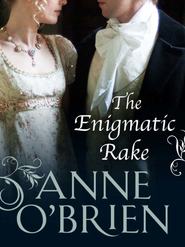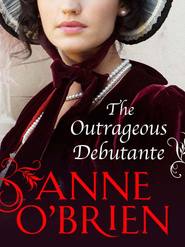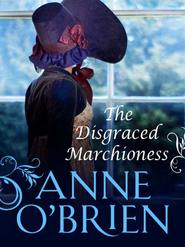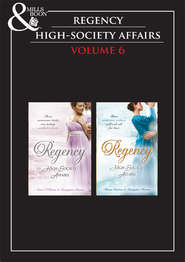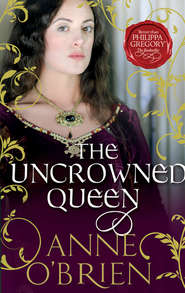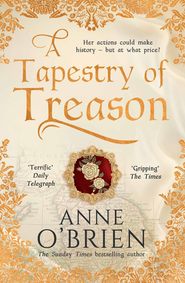По всем вопросам обращайтесь на: info@litportal.ru
(©) 2003-2025.
✖
The Scandalous Duchess
Настройки чтения
Размер шрифта
Высота строк
Поля
‘Thank you, my lord,’ I repeated.
There was nothing else for me to say that would not overwhelm me with one difficult emotion or another. My husband was dead a mere two months, somewhere in the battlefields of Aquitaine.
‘I valued Sir Hugh’s services greatly.’ The Duke paused. ‘And yours have been inestimable. For you, Katherine,’ he lapsed into the more familiar, abandoning the title that had come with my marriage, ‘there will always be a position here.’ And then, with gentleness: ‘Your place in the Duchess Blanche’s household earned you great merit. You must come to us again.’
Relief spread through me, sweet as honey. I sighed imperceptibly. All the fears that had pinioned my mind in recent weeks so that I could not think, could not plan, could not envisage the future, fell away. I would no longer be dependent on the limited revenues from the Swynford estates at Kettlethorpe and Coleby. I would have money to spend on critical refurbishments. My children would lack for nothing.
‘Thank you, my lord,’ I said for the third time in as many minutes. I seemed to have lost the capacity to form any other response, and for a moment I was touched with a pale amusement. I had not been known for lack of conversation. ‘Forgive me,’ I said. ‘I cannot tell you how much that will mean to me.’
‘Is Kettlethorpe very bad?’ he asked. He knew my situation.
‘You have no idea, my lord.’
And with the relief I raised my eyes to his, to discover that he was watching me closely, so that I felt the blood rise to heat my cheeks, and my relief became overlaid with a layer of uncertainty. Perhaps he was waiting for a more effusive sign of my gratitude. After all, I had no claim on him, no tie of duty or blood. Some would say he had done quite enough for me and my family.
Could it be that he thought me unfit for the position I sought? Damsels in royal households were chosen for their elegance and beauty as much as for their practical skills, women worthy in appearance and demeanour to serve the lady. I had done my best. My dark robes were as fine as I could make them, with no remnant of Lincolnshire mud. As for my hands and face, all that could be seen in the all-enveloping shrouding, I had applied the contents of my stillroom with fervour to remedy the effect of Kettlethorpe’s demands. I did not think the Duke would judge me too harshly, knowing my circumstances. And yet his eye had the fierce focus of a raptor.
To deflect the appraisal I launched into what I thought he wanted from me.
‘I cannot express my thanks enough, my lord. I feared for my children, living in hardship. I thought I should not come to you, because although I no longer have a claim on your generosity, Hugh was in your service, and you were good enough to stand godfather to my daughter Blanche. I knew that you would want Hugh’s son, Thomas, to do well in the world, and before God, there is little to give him anything but the most slender of incomes from the Swynford estates. Thomas is still so young and I have not the experience to manage the land well—or the money to do it, of course…’
My words dried. A minute ago I had been impossibly tongue-tied: now I was ridiculously garrulous. Had he not said that he would employ me? My problems were at an end and I could be at peace, but my heart continued to bound like a squirrel caught in a trap as the huntsman approached with a predatory gleam in his eye.
I thought that there might be such a gleam in the royal Duke’s eye, then chided myself. Most likely it was nothing but a shaft of light through the glazed windows, or simply amusement at my lapse into trivialities.
‘Forgive me, my lord,’ I found myself saying yet again. His reply was plain. ‘You have asked pardon enough, my lady. You did right to come to me. I will arrange that you take up a position as damsel in my wife’s household.’
He hesitated, the pause drawing out to fill the room. There was no doubt that he was frowning. Apprehension built again, a wad of sheep’s wool to dry my throat.
‘No,’ he said. The harshness of his tone unnerved me. ‘That is not what I want…’ And stretching out a hand towards me, he added: ‘I had forgotten how very beautiful you are. Your face has a grace, a translucent loveliness beyond my recall. And if you deigned to smile at me once in a while, it would illuminate every corner of the room.’
Which robbed me of the ability either to smile or to make any coherent response at all. Not understanding why the Duke should flatter me so highly—or was it flattery?—simply hearing the denial of what he had offered barely a minute ago, I took an uneasy step back, rejecting the thought that he might actually expect me to place my hand in his, and replied to the least shocking part of his speech.
‘Forgive me for being importunate, my lord.’ I forced my voice to remain uninflected. ‘I should leave. Until you have decided where I might be of service. Perhaps at some point in the future. I am sure that with the coming of drier weather in spring the problems of Kettlethorpe will not seem so overwhelming.’
I closed my lips, angry that I had been drawn into such a show of weakness. I would not beg. I would not make more excuses. It not being in my nature to ask again where I had been refused, I curtsied, a brisk farewell. ‘I am grateful that you received me, my lord.’ I turned to walk towards the door, pondering at this strange outcome. The Duke did not have the name for being a man who played fast and loose with the sensibilities of his dependents.
‘Don’t leave, Katherine.’
It was not a request. Suddenly it was very personal, and I halted.
‘Don’t go.’
I looked back over my shoulder but did not turn, my soul thought to depart from that room and the humiliating refusal he had just handed to me.
‘But you said that you did not wish to arrange a position for me, my lord.’
‘No, I don’t.’
‘Then what do you want, my lord?’
An inappropriately peremptory question perhaps, but by now I admitted to profound irritation. His dark hair might lay feathered against brow and cheek, curling immaculately against his neck; his elegant figure might express the epitome of earthly authority; he might be the proudest man I knew; yet he was still a man, prone to strange moments of inconsistency. And, as if to prove me right, he spoke the words that undermined every tenet I had been raised to honour.
‘I don’t want you as governess to my children. I don’t want you as damsel for my wife. I want you. I want you for my own.’
He did not attempt to moderate his voice to any degree, a voice used to issuing commands on a battlefield, in the cut and thrust of Parliament or in fiery debate with merchants over the extortionate level of taxes. The words reached me, with perfect clarity in their meaning.
‘I want you, Lady Katherine de Swynford.’
Now, slowly, every sense suspended in shock, I turned to face him, unable to lower my gaze from his.
‘I want you.’ He strode forward, and before I could thrust them behind my back he had clasped my hands in his. ‘Do you understand what I am saying? I want to kiss you, and I don’t mean a formal salute to your undoubtedly pretty fingertips.’ Which he instantly executed with neat precision. ‘I want to take you to my bed.’
Those fingertips lay nerveless in his clasp, my lips parted, but no words issued. Every sense, every feeling, seemed to be frozen in shock. In outrage when he raised one hand as if he would touch my cheek. I stiffened, anticipating what must surely be a caress. Then he simply ran his fingers along the edge of my veil, putting to rights its elegant fall. And I exhaled slowly, until he demanded:
‘I think you are not averse to me?’ He made of it a question. ‘Katherine…’ There was the exhalation, the familiar impatience that I recognised so well, but his voice and face were as smooth as the silk I had once worn, as I had hoped to wear again. ‘Will you come to me? You are a widow, owing loyalty to no man. You are without a protector. Will you give yourself into my keeping and allow me the honour of being your lover?’
Now I looked at him in sheer disbelief. John of Lancaster, the perfect knight, the most honourable and chivalrous of King Edward the Third’s sons, newly wed to Constanza of Castile a matter of months ago. And I, at twenty-two years widowed and of good repute, raised by his royal mother to uphold all the precepts of piety and virtuous dignity. And he was asking me if I would be his leman.
‘You stir my loins, Katherine de Swynford.’
Well, that pronouncement I could not mistake. The words slammed into my understanding. Was the Duke exerting some droit de seigneur, demanding my compliance? I did not wait the length of a breath to consider and select a reply; there was only one word I could say.
‘No.’ It was as flat a denial as I could summon.
‘Is that a considered refusal?’
‘Yes. My answer is no.’
‘Why not?’
I flushed. His brows indicated that he was surprised. ‘No,’ I repeated. ‘I don’t need to consider it.’ And bracing myself, for John of Lancaster had a chancy temper, I added, in case he had not taken my meaning: ‘My answer is without qualification. No, my lord, I will not. How could you ask it of me?’ I tugged my hands from his, thinking that perhaps I should escape before the torrent was released.
It was too late.
The Plantagenet prince lifted his chin as if he could not envisage a refusal, and then as I tensed against the verbal assault that would assuredly fall on my head, he gave a shout of laughter that reverberated from the walls.
Which was inexplicable. Was he mocking me? I bridled.
‘I see nothing to laugh at,’ I remarked coldly.
On which he stopped to draw in a breath, his eyes still gleaming with whatever it was that had moved him to a show of mirth.
‘You have a way with words, Lady Katherine.’
‘Because I said no?’
‘Exactly. I could not possibly mistake your sentiments, could I?’ He seized my hand again, and before I could stop him, saluted my fingers with a perfect propriety, at the same time as he executed a courtly bow.






